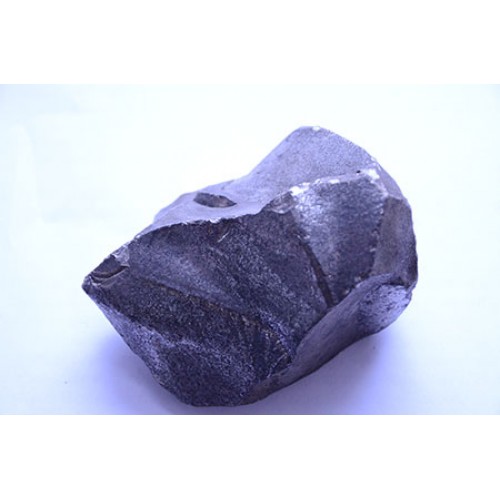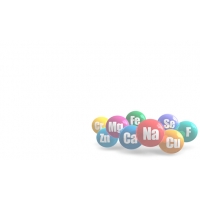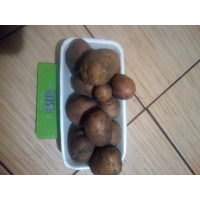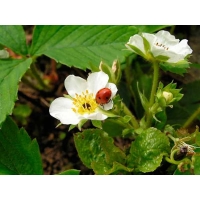Manganese (Mn) has the ability to be quickly digested by a plant and regulate the flow of other elements
Manganese (Mn) - is a trace element most necessary for plant nutrition after iron, its quantitative content in the plant is – 0,001%; it has the ability to be quickly digested by a plant, to move through its organs and regulate the flow of other elements; it affects growth processes, change of microbiological activity and the content of organic matter in agricultural crops; increases resistance to adverse factors, improves fruiting. Manganese takes an active part in the processes of photosynthesis (the transfer of electrons - due to the ability to change the chemical valence, the accumulation of chlorophyll, the formation of sugar, vitamins – ascorbic acid); of respiration (reduction of transpiration and increase of water-regulating ability, transfer of phosphorus from lower vegetative organs to the upper reproductive organs); of metabolism (carbohydrate metabolism, biosynthesis of proteins – amino acids, polypeptides, multi fractional proteins, etc.); of redox reactions; is a part of 10 groups of active enzymes (arginase, phosphotransferase, etc.).
Manganese deficiency: the insufficient manganese amount effects the formation of plastids and the process of photosynthesis; the plants are damaged by gray speck, their leaves become light green, the ratio of elements in the nutrition is deteriorated that leads to lethal yellowing, decline (small yellowish spots appear on leaves, that eventually lead to the extinction of their parts), to spotting of the roots; reduces frost resistance of agricultural plants. The most sensitive to the lack of the element: cereal crops (oats, barley) are damaged by gray speck, vegetable (spinach, beet) on which the spotted chlorosis is observed, legumes (beans, peas) – the seeds form black, brown spots, and fruit and berry crops (apple, peach) – various necrotic changes of leaflets, which further leads to a decrease or absence of fruiting. In most cases (for plants, if manganese is less than 10-25 mg / kg of dry weight) it leads to deficiency and manifests itself on soils after liming, at pH 6.0-6.5, at low temperatures, insufficient light intensity, high content of organic matter, in particular phosphorus and calcium.
Abuse of manganese nutrition: leads to a deficiency of iron in the soil. Yellow diseases appear on plants (on old leaves), spots of different colors (brownish black, necrotic) cover leaf blades and after a certain time leaves twist and fall; cereals suffer from wilting of crops. The manganese content exceeding in the soil should be controlled, in particular, plants should be fertilized with silicon, and the molybdenum eliminates the toxic effect of the element.
Manganese interinfluence with other elements
| Antagonists (overbalance of one triggers a deficiency of another element) | Synergist (improve mutual properties of each other) | Block the each other interaction (it is not recommended to combine together) |
| Fe (iron), Zn (zinc) | - | P (phosphorus), Ca (calcium) |
List of articles for the category from the blog Minor-nutrient elements
Articles list
Ukraine has an agrarian orientation of the economy and, in the modern context, one of the most perspective areas for agriculture is the use of organic products, based on the application of purely natural components, that the company AGRO.BIO manufactures and offers – concentrated liquid POTASSIC HUMATE, which helps to restore the natural components of the main active environment – the soil – rationally and effectively.
The soil environment does not always contain the enough amounts of nutrients necessary for plant growth and development, but this disadvantage can be improved by additional fertilization, in particular with POTASSIC HUMATE BALLASTLESS made of LEONARDITE produced by AGRO.BIO. It is an ecologically safe multi-nutrient fertilizer and growth stimulator of organic origin for agricultural plants promoting the increase of soil fertility.
In order to make it easier for you to get an understanding of our products, the articles about potassium humate and multicomplexes are uploaded below.
 English
English Українська
Українська Русский
Русский Espanol
Espanol French
French عربي
عربي

















